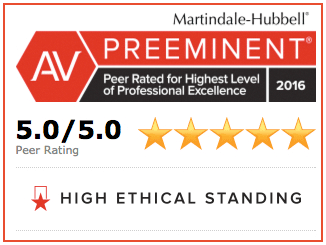Title 59: All You Need to Know

Under the law, in the State of New Jersey, as well as its counties, municipalities, and commissions, these jurisdictions have directives for sovereign immunity as the general rule for its employees and for itself. This immunity prevents them from being sued even when they are at fault. Thankfully, the immunity is not all-encompassing and there are circumstances in which public entities and their employees can be sued for their negligent acts or omissions. Hence, here is everything you need to know about Title 59 in New Jersey.
Common Lawsuits Filed Under Title 59
Under Title 59 in New Jersey, the most common exceptions that allow for the filing of a lawsuit include the following:
- Negligent supervision
- Vehicle crashes involving city or state vehicles
- Negligent maintenance
- Negligent actions of public employees
- Dangerous conditions of public property (roadways, bridges, parks)
- Medical malpractice
However, even in the above cases, there are strict proof requirements for each type of case that must be met before you can recover compensation. Therefore, an experienced attorney can explain them in more detail.
Pain and Suffering and Title 59

- Permanent loss of a bodily function
- Dismemberment
- Disfigurement
- Psychological and emotional distress (Post-Traumatic Stress Disorder)
In addition, you must have expended more than $3,600 in medical treatment bills, even if paid by insurance, before you can bring a claim for damages. In fact, the purpose of these requirements is to eliminate all minor claims under the Tort Claims Act.
Filing a Tort Claim
Although you generally get two years to file a negligence lawsuit against a public entity, you must file a Notice of Tort Claim within 90 days of the incident to preserve your right to sue. An exception exists that gives you an opportunity to serve the Notice of Tort Claim after the initial 90-day deadline. But, the courts use that exception very sparingly and it disappears after you reach the one-year anniversary of the accident. The following information must be included in the Notice of Tort Claim:
- Name and address of the person making the claim
- The post office address for all claim communication
- The place, date, and information surrounding the incident
- Description of the claimant’s injuries
- The names of the public employee or entity who caused the injury
- An amount of financial loss claimed by the victim
- A signature by the claimant
Have Questions About Title 59? Speak to an Attorney Today
If the actions of a government employee or government agency caused you a debilitating injury, enlist an experienced personal injury attorney to represent your interests. Call the office of Rossetti & DeVoto, PC at (844) 263-6260 today to schedule a consultation about your case. Don’t let the guilty party get away without providing you with just compensation.









